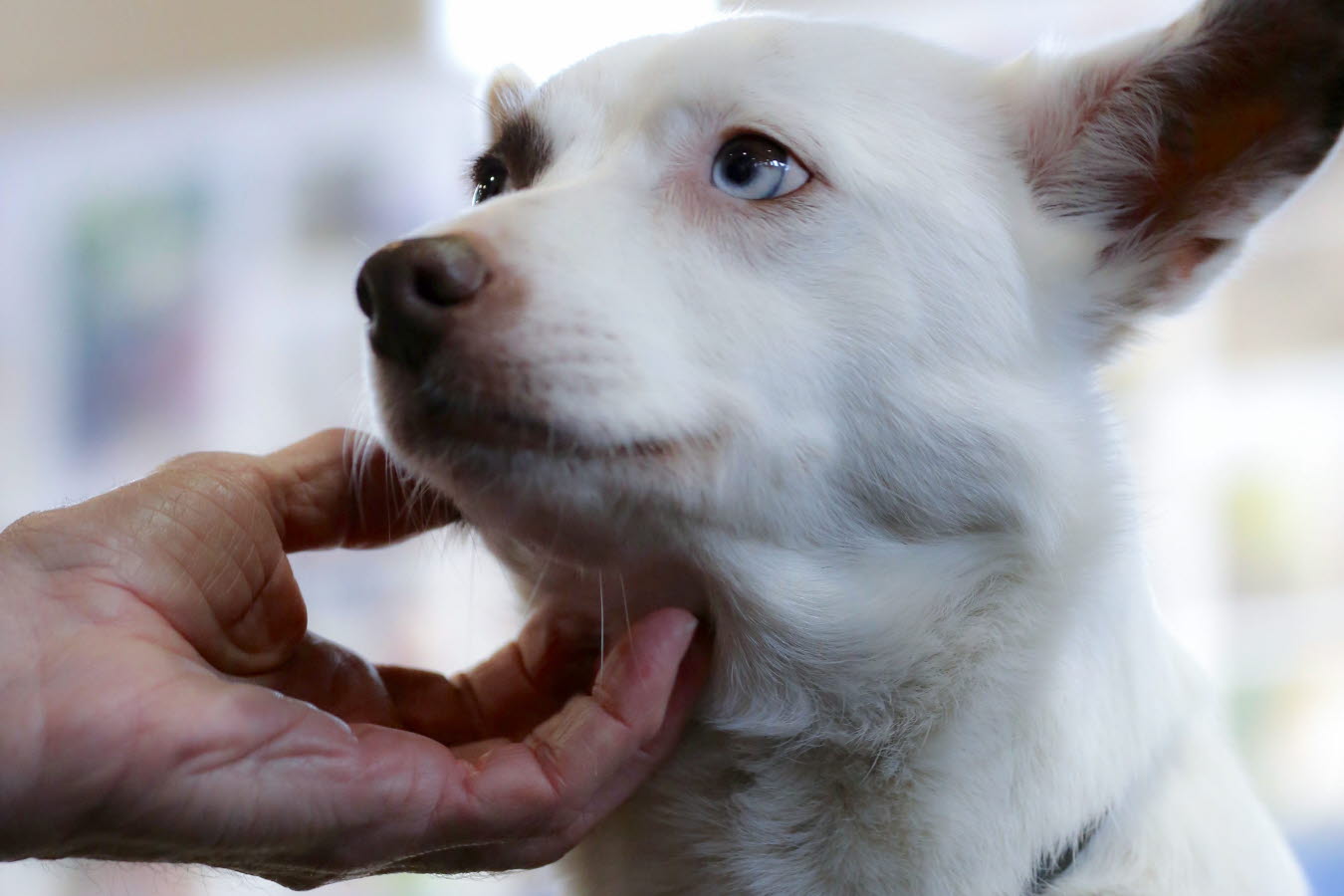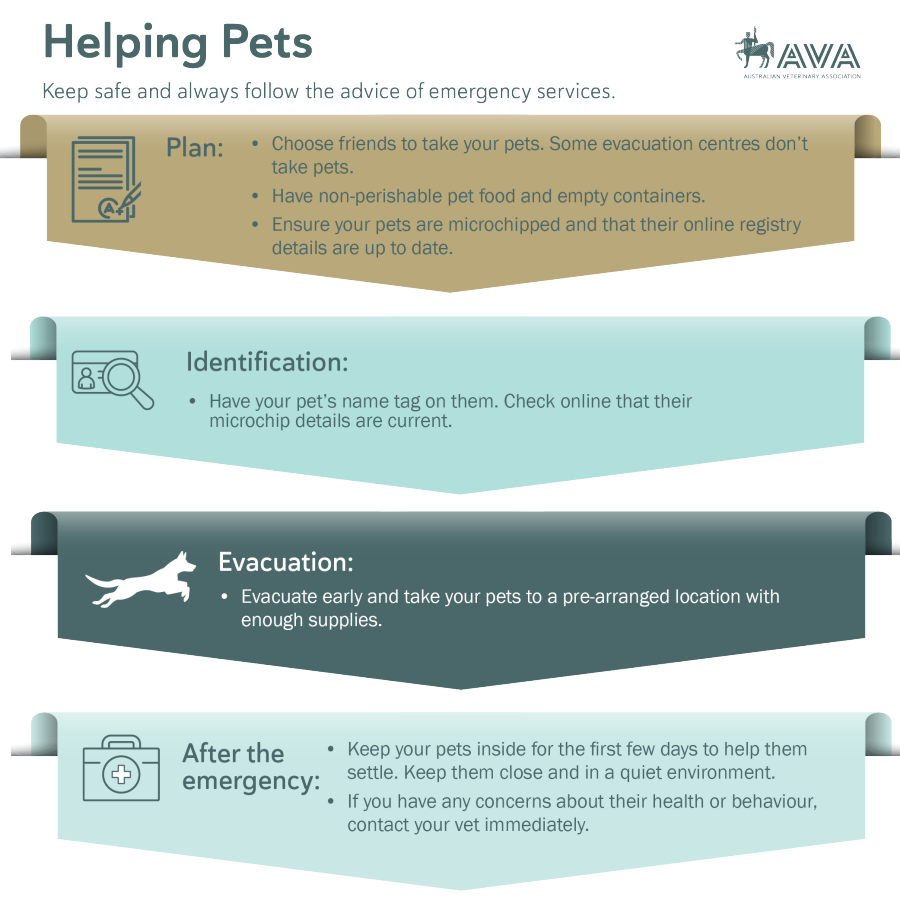
Bushfire preparation is critical and a survival plan for must include a plan for your pets. On days of high fire danger, you need to consider the following information to ensure the safety and wellbeing of you and your pets at all times.
Pets, hot weather and heat stress
Pets can become afflicted with heat stress (also known as heatstroke) during a period of hot weather. When dogs and cats experience heat stress, they can become severely unwell and the condition can be fatal. It is your responsibility to keep pets cool and comfortable, particularly on days of Severe, Extreme or Code Red fire danger days. Be aware of the warning signs of heat stress in your pets.
Warning signs of heat stress in pets
- Restlessness
- Agitated
- Salivating
- Excessive panting
- Vomiting
Keeping pets cool
Cats and dogs are not able to lose heat in the same way as humans. While we have the ability to efficiently sweat all over, cats and dogs are only able to sweat through their paw pads. They also pant to help cool themselves down. While dogs readily pant, cats will only pant in extreme heat conditions. Both dogs and cats benefit from our help in staying cool during hot weather and here are some top tips:
- Keep fresh cold water available at all times – you can add ice blocks to water bowls to keep them cooler for longer
- Keep pets inside in a cool dark room where possible
- Use airflow (a fan works well) to help keep them cool
- Airconditioning is ideal but not always available
- Ensure access to shade is available if they must be outside
- Allow your dog to bath in a pool or consider having a small children’s pool available for dogs to lie in
- Hose your dog with cool water
- Wipe pets down with a cold wet towel and leave for them to lie on
- Rub wet hands over your cat’s coat and belly
- Keep pets resting – refrain from encouraging your pet to play, run or chase toys
- Place ice packs in a towel or pillowcase and leave near your pet
- Never walk your pet in the heat of the day
- Never leave your pet in a car on a warm day – temperatures can reach dangerous levels within just minutes
Prepare a relocation kit ahead of the fire season
Ensure you are organised and able to leave home as safely and as quickly as possible. Ensure you have the ability to transport all pets, their food and water supplies alongside your own. Practice an evacuation as you may be surprised at how long it can take to manoeuvre your pets to leave the premises. Ensure cats are in carriers and dogs are on leads or are contained well before you want to leave.
Have the following items ready to go and within easy reach:
- Plenty of food and water
- Bowls, bedding and favourite toy for each pet
- Towels and a woollen blanket
- Carrier for cats or smaller pets
- Additional collars (with name tags/contact details) and leads
- Any prescribed medications for your pet including their description and instructions
- Pet medical history and vaccination certificates
- Your veterinarian’s contact details
Are your pets microchipped?
Microchips with up to date contact details are essential. This simple identification mechanism is a permanent and definitive proof of ownership that sees that lost or stolen pets are safely returned to their owners. If your pets are not microchipped, you should talk to your nearest vet to organise an appointment.

